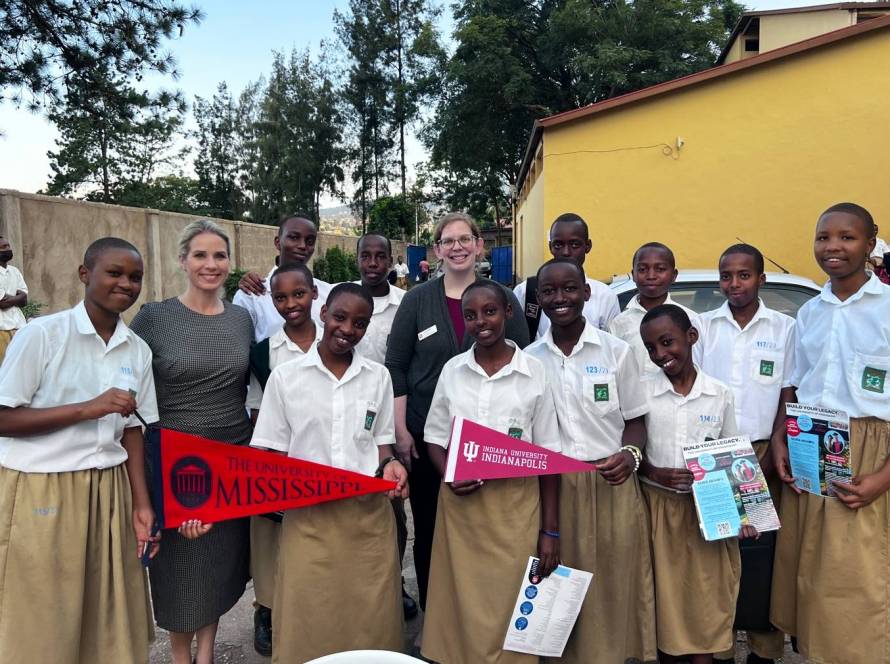Are you feeling the sting of not getting into your first-choice college? It’s a moment that can feel devastating, but I’m here to tell you that this setback can be the beginning of an incredible journey.
The Reality of College Admissions
College admissions are incredibly competitive, and rejection can feel like a personal failure. However, studies and expert commentary suggest that where you go to college does not define your future success. As Frank Bruni eloquently put it in his book Where You Go Is Not Who You’ll Be, “The nature of our lives isn’t determined by the name on the diploma, but by the people we become and the choices we make.” Through statistics, surveys, and the stories of hugely successful people, he demonstrates that many kinds of colleges serve as ideal springboards. What matters in the end are students’ efforts in and out of the classroom, not the name on their diploma.
Research supports this view. Studies by economists Stacy Dale and Alan Krueger found that students who were rejected by highly selective schools but attended less prestigious institutions had similar long-term success as those who were accepted by their first-choice institution. The key differentiator was not the institution but the individual’s drive and the opportunities they seized.
Maximizing Your College Experience
Here are some ways to make the most of your college experience, no matter where you end up:
– Engage Actively: Get involved in campus activities, clubs, and organizations. Leadership roles and active participation can significantly enhance your skills and expand your network.
– Build Relationships: Form connections with professors, advisors, and peers. Mentorship and strong relationships can open doors to opportunities, internships, and jobs.
– Seek Opportunities: Internships, research projects, and study abroad programs can provide practical experience and broaden your perspective. Don’t limit yourself to what’s available on campus—look for external opportunities as well.
– Focus on Growth: Use college as a time to explore your interests and develop your strengths. Take courses that challenge you, and don’t be afraid to step out of your comfort zone.
– Network Strategically: Attend industry conferences, join professional organizations, and use platforms like LinkedIn to build a network that can support your career aspirations.
Inspiring Examples
There are numerous examples of successful individuals who didn’t attend prestigious colleges but still achieved great success. Their achievements underscore the idea that it’s not the college that makes the person, but what the person does with their opportunities.
– N.R. Narayana Murthy, Co-Founder of Infosys, attended National Institute of Engineering, Mysore.
– Howard Schultz, the former CEO of Starbucks, attended Northern Michigan University.
– Oprah Winfrey started at Tennessee State University.
– Satya Nadella, CEO of Microsoft, attended Manipal Institute of Technology in India.
– Jack Ma, co-founder of Alibaba Group, attended Hangzhou Normal University.
– Indra Nooyi, former CEO of PepsiCo, attended Madras Christian College in India before going on to the Indian Institute of Management Calcutta.
– Kiran Majumdar-Shaw, Chairperson of Biocon Limited, attended Bangalore University
– Michael Dell, founder of Dell Technologies, attended the University of Texas at Austin.
– Larry Ellison, co-founder of Oracle Corporation, attended the University of Illinois at Urbana-Champaign and the University of Chicago but did not graduate from either.
– Tim Cook, CEO of Apple, attended Auburn University in Alabama.
– Steve Jobs, co-founder of Apple, attended Reed College in Oregon for a brief period.
– Hiroshi Mikitani, CEO of Rakuten, attended Hitotsubashi University in Japan.
– John Paul DeJoria, co-founder of John Paul Mitchell Systems and Patrón Spirits, attended Los Angeles Trade-Technical College.
– David Geffen, co-founder of DreamWorks, attended the University of Texas at Austin but graduated from Brooklyn College.
Stay the Course
Rejection from a first-choice college can be a pivotal moment. It may sting, but it does not define your future. What matters most is how you leverage the opportunities you have, the relationships you build, and the experiences you embrace. Success is not determined by the name of the institution on your diploma but by the passion, perseverance, and creativity you bring to your journey.
Remember, your college experience is what you make of it. Embrace it fully, and you’ll find that the path you’re on can lead to remarkable destinations, regardless of where it started.


